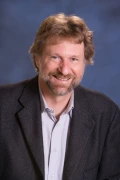Meditations on Physics, Metaphysics and Consciousness – Commentary on Dr. Eben Alexander’s book PROOF OF HEAVEN February 1, 2013
Posted by rwf1954 in afterlife, consciousness, Eben Alexander, metaphysics, nature of reality, nde, near death experience, Proof of Heaven, spirituality.Tags: afterlife, consciousness, Eben Alexander, metaphysics, nature of reality, nde, near death experience, Proof of Heaven, spirituality
add a comment
At the beginning of the year 2000, at the outset of the new millennium, I wrote about my predictions for the next one thousand years (published in an on-line journal “New Works Review.” My most “out-of-the-box” prediction was that science and religion, physics and metaphysics, would join—the spiritual world would come together with the material. Since then, I have gone into my own speculations about the subject, very conscious of the daunting nature of the subject and how I am trying to skip centuries ahead of my own prediction. But I have seen signs that this predicted union inches closer and closer. Proof of Heaven, written by Dr. Eben Alexander, a neurosurgeon, brings us a piece of the puzzle. I found this book invigorating, inspiring and a harbinger of what I hope will be a spiritual leap forward for humanity, as elaborated in my year 2000 prediction for the year 3000.
Basically, Proof of Heaven is a chronicle of Dr. Alexander’s near-death experience when he becomes deathly ill with E. coli bacterial meningitis. Of course, near-death experiences have been described in diverse publications for many years. What makes this one different is that Dr. Alexander is a highly trained specialist in the human nervous system and human brain function. He acknowledges he would have previously explained near-death experiences as the final convulsions of dying brains, illusions, spiritual mirages tantalizing the fading consciousnesses of purely material beings. His transformation from that point of view into his certain embrace of a spiritual component of reality, and of “life-after-death,”—with all his training and indoctrination into a material medical way of thinking—makes this story compelling. If he was a different person, we might offer some explanations as to why he would offer this story. Maybe he is a person easily fooled by his brain’s malfunction. Maybe he is a person looking for money or attention. But the truth is, this is an individual who would be extremely unlikely to be fooled by brain malfunction. This is a prosperous person not in need of a bestseller for money or status. In fact, Dr. Alexander specifically refers to people “with medical degrees” as the most likely to be skeptical of the description he gave of his experiences. So this book could well hurt his status as a still-practicing doctor.
Of course, I recommend reading the entire book, and I’m hoping most people who come across this post have already read the book and are interested in discussions about the joining of physics and metaphysics this book is certain to generate. This post is not intended as a book review—I am relating Dr. Alexander’s book to some of my own thinking on the potential unification of science and religion, of physics and metaphysics.
During this post I will refer to two of my previous blog posts about the issues raised by Dr. Alexander’s book:
Meditations on Physics, Metaphysics and Consciousness – August 30, 2011
Meditations on Physics, Metaphysics and Consciousness II – October 7, 2011
Some thoughts:
- Dr. Alexander makes it clear he was not suffering from a sick, poorly functioning brain—“the neocortex was out of the picture” during his experience, he “existed completely free of the limitations” of his physical brain. This refutes any theory that Dr. Alexander simply experienced the sensations of a brain in its death throes.
- Dr. Alexander discusses the difficulties of communicating his experiences, what he learned, within the limitations of human communications capabilities. He describes for us imagery and sensations, but we sense his frustration as his words are clearly inadequate to convey the full scope of his recollections. He says “I’m struggling to give you the vaguest, most completely unsatisfactory picture of… the single most real experience of my life.” As I discussed in Meditations on Physics, Metaphysics and Consciousness II, we are interacting energy fields with the limitations of our unique human sensory abilities. Dr. Alexander refers to entering what I call in Meditations on Physics, Metaphysics and Consciousness the “all-consciousness.” He cannot relate this entire experience to us because of human perceptive limitations. A challenge we have as humans, on our journey toward unifying the material and the spiritual, is to identify what is knowable and pursue that knowledge with all our ingenuity and creativity, and to identify what is unknowable, and not chase the unknowable or even worse, argue or fight about it. This, of course, is much easier said than done.
- Dr. Alexander mentions instant knowledge and understanding. I believe this addresses another issue I have previously discussed. Time, time’s forward arrow, is a perceptive tool reserved for humans. I believe time, in the ultimate reality, in the all-consciousness, does not exist as we perceive it—in arrow form, in strings of causes and effects. Everything exists always—simultaneously. Dr. Alexander experienced this. Knowledge exists always. There is no time needed to learn. Learning is a time-dependent, time-arrow activity. Instant knowledge comes from immersion into the all-consciousness.
- Dr. Alexander says “certain members of the scientific community, who are pledged to the materialist worldview, have insisted again and again that science and spirituality cannot coexist. They are mistaken.” Thank you, Doctor. Well said. For most of humanity’s existence, we have sensed a higher power. Now, in a few centuries, we are rejecting all of that? Are we really so much smarter than all those past human beings? Should we really be so smug and arrogant that we discard spirituality, with a casual dogmatism, with a narrow-mindedness that adherents to the scientific method should categorically reject?
- In my meditations on these issues, I have wondered why we are treated to such a small slice of consciousness, and why we can’t tap into more of it during our lives. More disturbingly, I wonder why the death of the brain should free us to tap in to more of the all-consciousness—common sense points to the opposite idea. Dr. Alexander offers an answer. From his near death experience, he learned “the brain itself doesn’t produce consciousness… it is, instead, a kind of reducing valve or filter, shifting the larger, nonphysical consciousness that we possess in the nonphysical worlds down into a more limited capacity for the duration of our mortal lives.” He goes on to explain the advantages of this. In my words, the interconnected energy fields that make up our physical reality are full of gigantic amounts of information. We need filters to simplify all of this so we can function in our narrow human existences. Life is a gift of intense, narrow sensations, captivated into three/four-dimensional space/time. Dr. Alexander hints at an “afterlife” existence that blends us with the all-consciousness, but which would surely lack some of the focus our narrow perceptive abilities require—and grant to us as a result of that requirement.
- Dr. Alexander now understands explanations for “dark matter” and “dark energy.” Good luck with that one, folks. We only know about these phenomena by implication, by mathematical calculation. Right now, no one can even find this stuff to study it.
- Dr. Alexander also discusses good, evil and free will. Free will seems an elemental part of the gift of life. But if there is free will, good and evil have to follow. The ability to make choices make it absolutely unavoidable. He says he became aware of much more good than evil. I hope he is right. I’m not sure this necessarily follows logically, at least from the information we are working with. He does say “beings” in the “worlds above” are watching us as we “grow toward the Divine.”
- How do we “grow toward the Divine?” Love. I was gratified to read this, because I wrote specifically about this in the seventh paragraph of Meditations on Physics, Metaphysics and Consciousness. I mentioned the difficulty of maintaining that love. Dr. Alexander’s experiences may help guide us toward a way to find it more often, and more widely. Perhaps confidence in an afterlife of the type described by Dr. Alexander could help humanity in that direction.
- Dr. Alexander mentions religion and discusses an important distinction: “I didn’t just believe in God; I knew God.” He describes an incident after stepping up to take communion with tears streaming down his cheeks. I couldn’t help but think Dr. Alexander, with the experiences he describes, would not limit God to one religion. I think his experiences also argue there could well be more than one path to God. I mean, do we really think that God, the Divine, the all-consciousness, has finished revealing Itself/Himself/Herself? That just a few spiritual sages from humanity’s past, pre-scientific revolution sages, have given us our religions and there is no more spiritual discovery to come?
- Dr. Alexander takes on quantum physics, cutting edge knowledge science has to offer us on the elemental nature of our physical reality, bringing those ideas into the context of his experiences. He says “on the subatomic level… this universe of separate objects turns out to be a complete illusion. In the realm of the super-super-small, every object in the physical universe is intimately connected with every other object. In fact, there are really no ‘objects’ in the world at all, only vibrations of energy and relationships.” This, to me, leads to the inevitable conclusion that everything exists always—I go into details on this in Meditations on Physics, Metaphysics and Consciousness II. Why should we assume an interconnectedness only at the quantum level? I think Dr. Alexander’s spiritual experience, and his insights linking his cutting edge spiritual experience with cutting-edge physics, leads us to this conclusion.
- Dr. Alexander discusses our still barely rudimentary understanding of consciousness. He suggests “we live in the dimensions of familiar space and time, hemmed in by the peculiar limitations of our sensory organs and by our perceptual scaling within the spectrum from the subatomic quantum up through the entire universe.” My suggestion—the all-consciousness may well exist as a single point. Our own piece of consciousness creates our perceptions of size and dimension beyond that point.
Yes, I know at times during his post, I seem to be saying “Hey, I mentioned this in my previous blog posts.” What I am really saying is “Hey, Dr. Alexander, I get it. Not at a level of direct experience like you, but I get it. It makes sense to me.” I invite others to comment if they “get it” too.
Dr. Alexander has a website set up for further development of these ideas:
http://www.eternea.org/index.htm



Book Commentary on COLLIDER by Chris Hejmanowski March 1, 2013
Posted by rwf1954 in afterlife, book review, books, Chris Hejmanowski, Collider, consciousness, metaphysics, novel, novel review, spirituality.Tags: afterlife, book commentary, book review, books, Chris Hejmanowski, Collider, consciousness, metaphysics, novel, novel review, spirituality
3 comments
Collider, written by Chris Hejmanowski, is a novel that makes an ambitious attempt to blend physics and metaphysics (an idea I have been playing with since I predicted a completed union of the two by the year 3000 in my essay published in on-line journal “New Works Review” – “Predictions for the Next Millennium”). From my perspective, for my priorities, Collider spends more time on the imagery of heaven and hell in the afterlife, and on the demons in hell, than on the science. But the attempt to link the two is present and stimulates thought processes toward this grand, for some unthinkable, unification. So I am commenting about this book today, recommending it to people interested in this subject.
Collider is the story of particle physicist Fin Canty, on the verge of a trip to the CERN particle collider to evaluate what may be a seminal particle physics discovery when he is killed in what appears to be random gang violence. (As the novel unfolds, we find out Canty’s death was not random at all.) His post-death choice to leave heaven to pursue his toddler daughter, who has ended up in hell after being killed as a result of the same gang violence, brings him into contact with vivid, horrifying imagery and sensations. The result of his efforts to rescue his innocent daughter burst forth into the consciousness of living humanity with the potential of creating a bridge between science and the Divine.
Within the action of Fin Canty’s struggle in the afterlife, and the investigations of the still-living characters into Fin Canty’s murder and its aftermath, Hejmanowski addresses issues of faith and belief. The strength of Fin Canty’s faith serves him well. But faith also warps some of the other characters’ motivations and behaviors. Faith and belief are very much double-edged swords for Good or Evil in Collider.
Collider is a vivid, suspense-filled story set within cutting-edge physics suggesting a union between science and religion—entertaining and thought-provoking simultaneously.
Also/Afterthought: I enjoyed the quote at the beginning of Hejmanowski’s novel from Albert Einstein: “Reality is an illusion, albeit a very persistent one.” I think this quote reflects the human limitations of perceiving reality. We are only capable of perceiving what is available to our own three/four dimensional space/time frame of reference. I would not use the word “illusion,” unless we want to call reality a shared illusion. I have read that cats occupy the same locales as their pet-owners, but experience a very different reality with different focuses and priorities. This is “relativity” demonstrated at its most basic level. I think we humans face the same issue. But, it is a persistent reality we occupy—even if we understand we may not perceive what other consciousnesses perceive, this is what we have! Perhaps a more accurate quote would be: “Reality may shift depending upon the perceptive capabilities of the consciousness experiencing it, but we have only our own perceptive tools available, so are stuck with reality the way it is.” On second thought—Einstein, yours is simpler, and more elegant!
I explore these issues in other blog posts on this subject:
Meditations on Physics, Metaphysics and Consciousness – August 30, 2011
Meditations on Physics, Metaphysics and Consciousness II – October 7, 2011
Meditations on Physics, Metaphysics and Consciousness – Commentary on Dr. Eben Alexander’s book Proof of Heaven – February 1, 2013